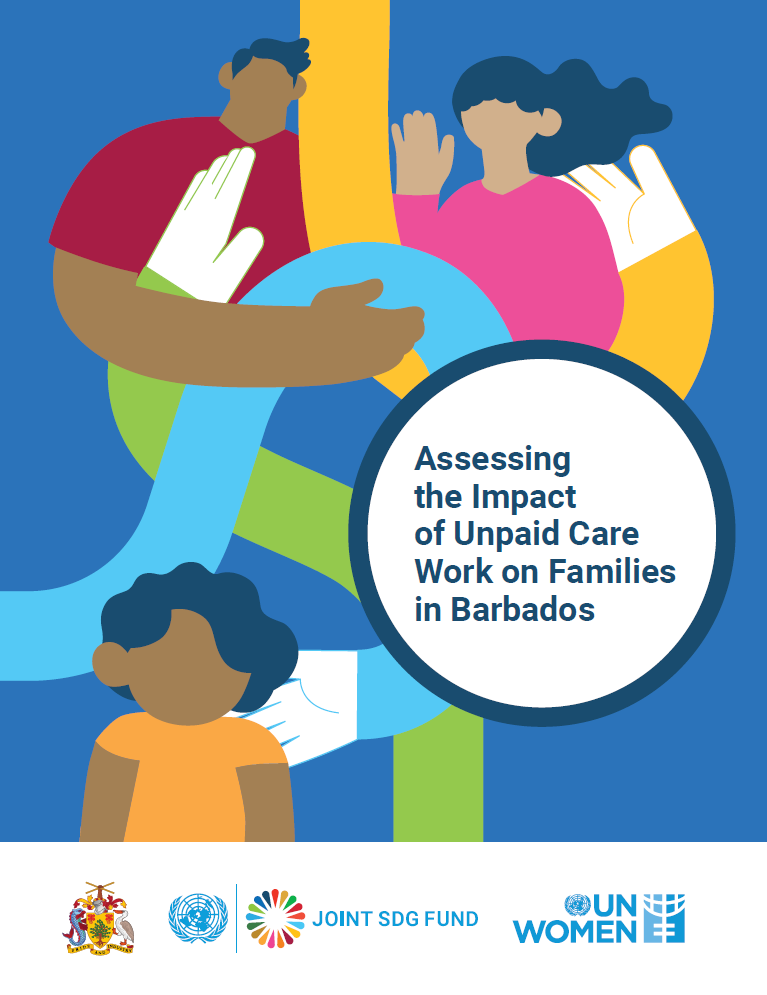
Assessing the Impact of Unpaid Care Work on Families in Barbados

UN Women believes that “improved measurement of the amount, kind, and distribution of unpaid care work between men and women within families and communities (through time-use surveys and other instruments) and of paid care work, decent work deficits, and occupational segregation will help shape better and more gender-responsive care policies and systems,” (UN Women Toolkit 2022, p. 6).
This Knowledge Product was funded by the Joint SDG Fund Programme, Integrated Population Data and Policy Solutions to Accelerate SDGs Achievement in Barbados and Montserrat. This Joint Programme aims to facilitate gender analysis for evidence-based policy and programme development in Barbados and Montserrat, with a focus on SDG 3, to ensure healthy lives and promote well-being for all at all ages, and SDG 5, to achieve gender equality and empower all women and girls.
Under this project UN Women Multi Country Office (MCO) – Caribbean sought to increase access, availability, and completeness of quality data to support sustainable development in Barbados. The agency’s particular focus in this programme, is to assess the impact of Unpaid Care and Domestic Work (UDCW) on families. Six (6) focus groups (retired people, fathers, mothers, people living with disabilities, youth and faith-based groups) were held to assess the impact of UDCW on families and communities, as well as to acquire feedback on what policies, programmes, and services are needed to address the challenges.